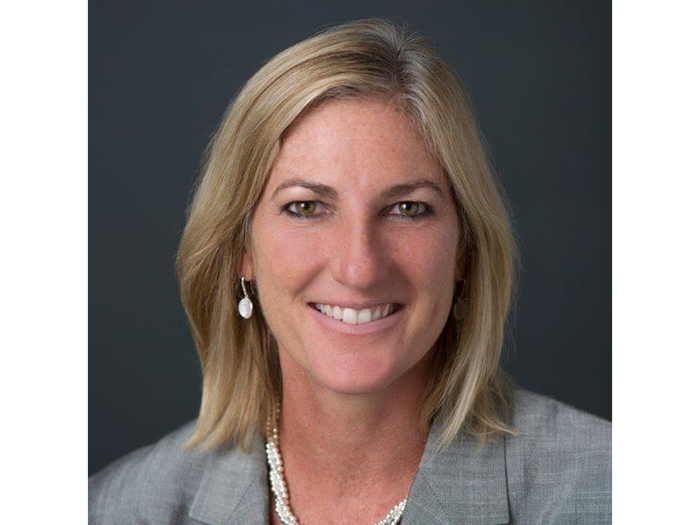Industry Relationships that Last: BHSI’s Lori Spoon Shares How to Build a Strong Culture and Great Customer Experience

When it comes to building a great team, Lori Spoon is the woman for the job.
She sees the value in giving everyone involved a seat at the table.
“Everybody has a voice. And if people on the team are encouraged to share observations and perspectives, you become a better force for it,” she said.
As head of customer and broker engagement at Berkshire Hathaway Specialty Insurance, Spoon has spent a good portion of her time working across the organization to build out strong relationships with brokers and customers while maintaining an open work environment where everyone on her team is heard.
“It’s so important to invest in your team in a really sincere, authentic, consistent way,” she said.
Spoon sat down with Risk & Insurance® to discuss the qualities behind a great team, building relationships in the industry and how a company’s culture impacts its overall reputation. Here’s what she had to share.
Risk & Insurance: What are some of your responsibilities as head of customer and broker engagement at Berkshire Hathaway Specialty Insurance?
Lori Spoon: My role centers around three different areas: brokers, customers and our team.
With the brokers, we need to make sure that the underwriters have access to qualified opportunities through an efficient and effective distribution model, building strong productive relationships with our strategic trading partners.
Everyone on the BHSI underwriting, claims and leadership team plays a role with broker and customer relationships. Our underwriters do a phenomenal job, better than I’ve ever seen, in terms of being very present with their trading partners and earning trust.
With customers, from our earliest days, we recognized the importance of constant dialogue and feedback. We established Customer Advisory Boards to understand their perspective, needs and their experiences in the market. Through the feedback from our boards and customer roundtables we reinforce those learnings across the organization.
And then thirdly, I’m responsible for making sure that the entire BHSI team is provided the tools and resources so that when an underwriter is meeting with a customer, we can speak to the overall relationship and experience that customer has had with us across the board, and where we may be able to support other opportunities.
R&I: Why would you say building relationships is a key part of the insurance industry?
LS: This is a business of trust. We trade on trust and knowledge.
Berkshire started out eight years ago with a small group of very smart industry veterans and zero customers.
We have to offer a high level of certainty for a new customer to justify making a change. It’s not lost on us that trust needs to be earned with every opportunity.
We prioritize meeting insureds in partnership with our brokers. But a meeting doesn’t translate to a relationship. We work hard at making sure we’ve got multiple touch points for our customers across the team, including claims, senior management and technical specialists.
R&I: What does a good relationship in this business look like? What keeps it strong?
LS: A relationship has to be earned. Over time, it’s about consistency, transparency — transparency is a word that I think is often overused, but what does that mean? It’s about managing expectations, sharing our perspective of our risk, or communicating early if we need to make adjustments.
We need to communicate proactively so that our brokers and customers can manage expectations with their constituents. It’s delivering tough news early with clear relevance to the customer’s unique risk. And no surprises. Surprises can be scorched earth that’s not recoverable.
It’s also about being humble, not over-promising and being very focused on what we can or can’t do to help support their success. It’s about being highly responsive to opportunities – but the real skill is in the long game.
R&I: You also deal with customer experience. Can you talk about what that means for BHSI?
LS: We had a white canvas when we launched, which was an opportunity to design our platform, and fundamental to this was designing the company’s culture and being intentional in terms of who we wanted to be as a team and who we wanted to be when we’re out in the market.
We were very clear in terms of the culture we wanted to have as capable professionals, with a commitment to each other’s success. Again, it’s easily said, but not easily done bringing people together as one team.
So we had an opportunity to do the same thing with our customer experience where we could step back and define the reputation that we want to earn into. And what are the things that we need to do to make sure we’re living into that aspiration?
R&I: You mention BHSI’s reputation as being part of the customer experience. How do these two areas weave together?
LS: By being really consistent and living into the reputation we set out to achieve. Less about saying these things about ourselves, but conveying value and demonstrating knowledge and relevance.
Consistently positive customer experience will build the reputation. And that also comes down to talking less, listening more. It’s showing up and being consistent, and doing the right thing.
I’ll give an example. We set out very early with a commitment to achieving a reputation for willingness and the ability to pay claims. Given the BRK balance sheet, there’s not a lot of question about the ability to pay claims, necessarily, but the willingness is always something that people have to experience to know it.
In the first weeks of BHSI’s inception, David Crowe, our global claims leader, mandated that when a claim is reported, his team will start looking for coverage in the policy, and communicate throughout the process in a way that strengthens our relationship. Fast forward 8 years, we’ve lived into this commitment.
We’re consistently ranked highly among our peers in broker surveys, and the customer testimonials are a source of pride for the entire team that we will deliver on our promise.
R&I: Why does culture matter to the company’s overall goals?
LS: People having a sense of what they’re part of is really, really important, as is having a sense of pride about the organization. BHSI is a unique situation where so many of us have been part of building the company. And so, there is a strong sense of ownership.
It makes a difference when people show up and are very positive about their organization. If you are positive about your experiences, that’s reflective. We’ve got a high level of energy and trust within the organization. And if you trust people within the organization, that shows up externally, too.
R&I: What is the culture like at BHSI? What do you like most about it?
LS: The culture is extremely thoughtful and intentional.
Culture does not happen by accident. Because we had the opportunity to design culture based around the people we bring in, we’ve been able to meld 2,000 people together from over 200 different companies around the globe. Everybody comes in with different expectations, different experiences.
That’s added opportunities to be clear and thoughtful and intentional in terms of who we are and how we operate, because we want to create something different than any of the organizations we had come from, and unique relative to our peers.
It’s been extremely gratifying to have been part of the process, having the opportunity to play a big role in our culture, internally and externally. We’ve got a fantastic team and we learn so much from each other.
Everyone on the team is accessible. We are not layered or diluted with internal formalities. There’s no room for carrying egos about one role versus the other. We’re all driving for the same results.
R&I: What lessons have you learned in your career so far that are valuable to share?
LS: Business relationships over time become really valuable currency. I left the industry for a bit several years ago and had a great experience learning a new industry, but I think I took for granted how valuable the relationships I had built were.
When I came back into the industry, it just was so gratifying to be able to reconnect with people and generate opportunities that had positive dividends for both sides. The relationship equity you build up over the course of a career is significant – particularly in our business. It’s important to be humble, but I’ve learned not to underestimate the impact of earned trust.
As a last note of career advice: If you’re in an environment where you’re constantly learning and can bring others along and foster careers for other people, you can’t ask for more in a really rich and rewarding career and life experience. Learning from each other, learning from the industry, learning from our customers — there’s absolutely nothing static. I take nothing for granted and continue learning every day. &










